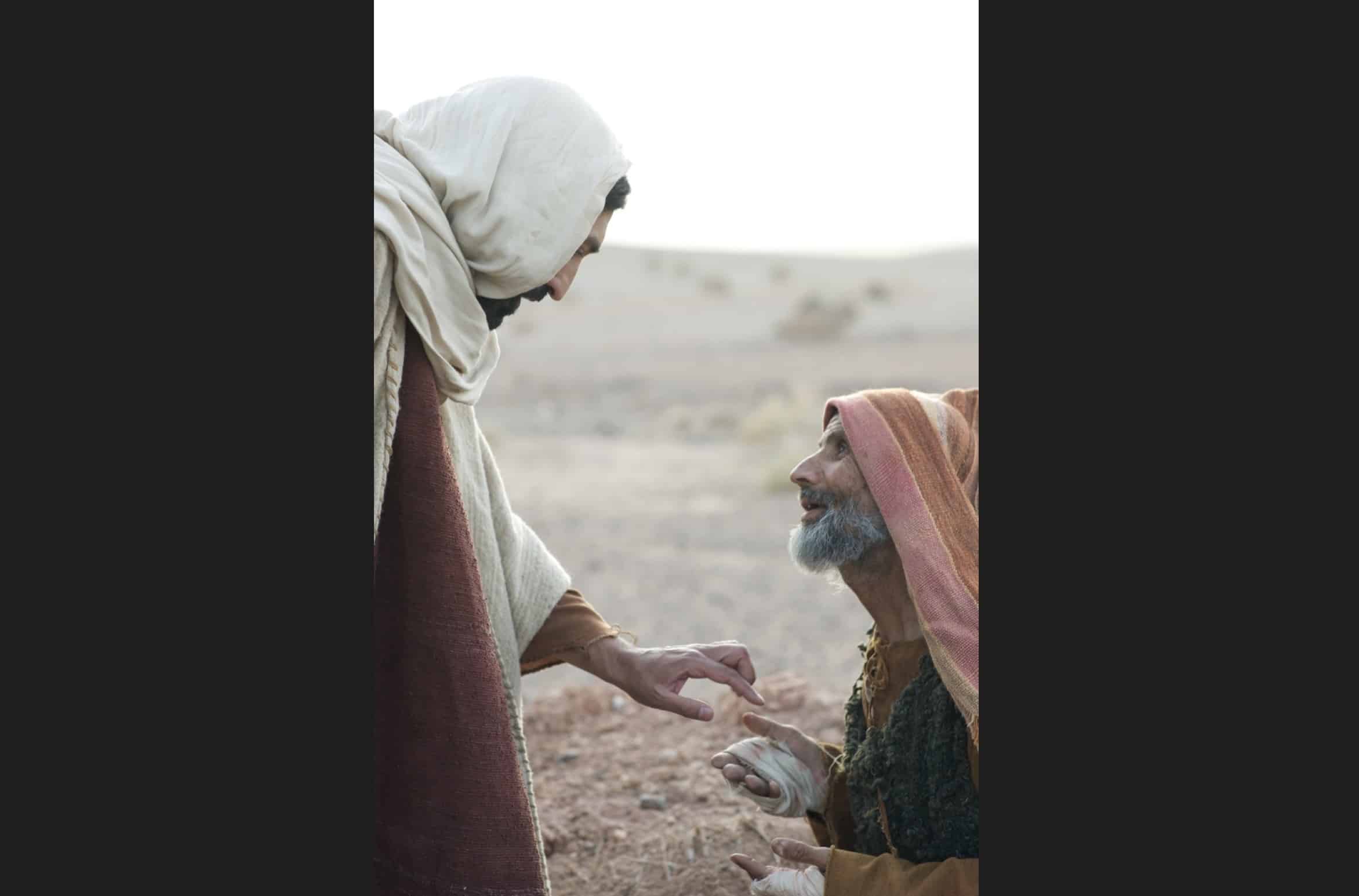In Luke 17:11-19, Jesus healed 10 men who had been suffering from severe skin problems. One of them, a Samaritan, returned to Jesus to offer praise and thanks to God. Significantly, Jesus noted that of the 10, only he—a foreigner—had returned to express thanks. Then he said to the man, “Get up and go on your way. Your faith has made you well” (v. 19).
This is not the only time Jesus highlighted the faith of an individual He had healed, indicating it was a doorway to wellness and wholeness. Here are two other instances.
-
-
- In Mark 5:24-34, as Jesus was on His way to the home of a synagogue leader named Jairus to heal his daughter, a woman touched Jesus’ robe and was healed of a bleeding problem she’d had for 12 years. Sensing power for this healing had flowed from Him, Jesus asked who had touched his robes. The woman identified herself, and Jesus told her, “Daughter,…your faith has made you well” (v. 34; see also Matt. 9:20-22; Luke 8:43-48).
- In Mark 10:46-52, a blind man named Bartimaeus asked Jesus to be merciful to him and to make it possible for him to see. Jesus told him to go his way, and He added, “Your faith has healed you” (v. 52). Right away his sight returned and he followed the Lord (see also Luke 18:35-43).
-

Let’s consider more closely some elements of the statements Jesus made in the instances we’ve cited above. The Greek word translated faith in Luke 17:19, Mark 5:34, Matthew 9:22, Luke 8:48, Mark 10:52, and Luke 18:42 is the same word. It refers to a conviction of truth or a conviction affirming God’s reliability. It means belief or trust. The term often is used to refer to the trust placed in Christ for salvation, as in Acts 26:15-18, Romans 1:17, Romans 4:13, Romans 5:1, Ephesians 2:8, Philippians 3:9, and Hebrews 11:6. The word also can refer to the faith, the broad Christian message itself. This is the case in various places, including Acts 14:22, Acts 16:5, Titus 1:13-14, and Jude 3.
In addition, the word translated well in Luke 17:19, Mark 5:34, Matthew 9:22, and Luke 8:48 is the same word translated healed in Mark 10:52 and Luke 18:42. And significantly, this same Greek word is used to refer to Christ’s saving those who believe in Him. It is rendered save in Matthew 1:21, and saved in John 3:17, Acts 2:21, Romans 10:9 and 13, Ephesians 2:8, and Titus 3:5. The word also is used to refer to being saved in a conventional sense, as in Luke 23:36-37.
We must remember that faith can be no more valid than the object in which it is placed. The instances of physical and spiritual healing we’ve cited above, as well as the many examples in Scripture and in history of transformations occurring when people have placed their faith in Christ for salvation—all of these—underscore the truth that Jesus can be trusted. Salvation becomes ours when we rely on Him for eternal life and forgiveness of sins. Believing in Jesus, we are made well.
Copyright © 2015 B. Nathaniel Sullivan. All rights reserved.
Unless otherwise noted, all Scripture quotations in this article are taken from the Holman Christian Standard Bible®, Copyright © 1999, 2000, 2002, 2003, 2009 by Holman Bible Publishers. Used by permission. Holman Christian Standard Bible®, Holman CSB®, and HCSB® are federally registered trademarks of Holman Bible Publishers.
top image credit: Lightstock
image credit: Jesus Healing Blind Bartimaeus
